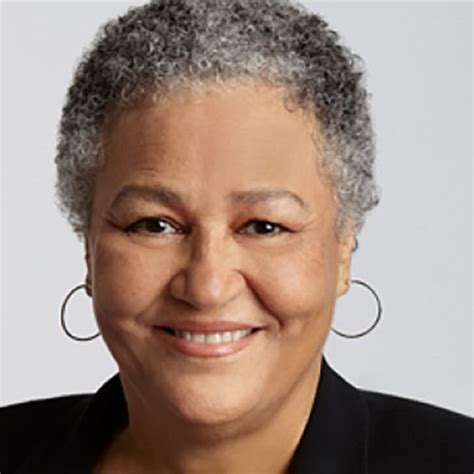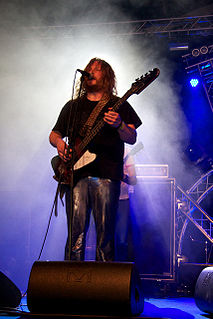A Quote by Graham Hancock
The use of language around drugs is really important. So we find that it's increasingly difficult in our society to find the word "drug" not connected to the word "abuse." The notion of a responsible use of drugs is written out in the language of our culture.
Related Quotes
The similarities between street drug abuse and psychotropic prescription drug use are disturbing. Both types are toxic. Both can cause psychosis, damage the brain and other organs, and even cause death. And neither type of mind-altering drugs, legal or illegal, treats disease. It's important to recognize that the only significant difference between many prescription psychotropic drugs and street drugs such as "speed" and "downers" is that prescription drugs are legal.
In short, my vision of a responsible free society is one in which we discourage evil, but do not prohibit it. We make our children and students aware of the consequences of drug abuse and other forms of irresponsible behavior. But after all our persuading, if they still want to use harmful drugs, that is their privilege. In a free society, individuals must have the right to do right or wrong, as long as they don't threaten or infringe upon the rights or property of others. They must also suffer the consequences of their actions, as it is from consequences that they learn to choose properly
By characterizing the use of illegal drugs as quasi-legal, state-sanctioned, Saturday afternoon fun, legalizers destabilize the societal norm that drug use is dangerous. They undercut the goals of stopping the initiation of drug use to prevent addiction.... Children entering drug abuse treatment routinely report that they heard that 'pot is medicine' and, therefore, believed it to be good for them.
I sing only in Meronian - my own language - but there are also elements of English and Finnish languages in our songs. When we use the spiritual Meronian language, the word 'international' doesn't do justice to our band. This kind of psychic language's means of communication can reach galaxies beyond our planet, not to mention the other living and inanimate entities of our own planet.
I believe that should is one of the most damaging words in our language. Every time we use it, we are, in effect, saying that we are wrong, or we were wrong, or we're going to be wrong. I would like to take the word should out of our vocabulary forever and replace it with the word could. This word gives us a choice, and we're never wrong.
We depend on our words... Our task is to communicate experience and ideas to others. We must strive continually to extend the scope of our description, but in such a way that our messages do not thereby lose their objective or unambiguous character... We are suspended in language in such a way that we cannot say what is up and what is down. The word "reality" is also a word, a word which we must learn to use correctly.
People use drugs, legal and illegal, because their lives are intolerably painful or dull. They hate their work and find no rest in their leisure. They are estranged from their families and their neighbors. It should tell us something that in healthy societies drug use is celebrative, convivial, and occasional, whereas among us it is lonely, shameful, and addictive. We need drugs, apparently, because we have lost each other.
Language both reflects and shapes society. Culture shapes language and then language shapes culture. Little wonder that the words we use to talk to each other, and about each other, are the most important words in our language: they tell us who I am, they tell us who you are, they tell us who 'they' are.
I believe that we must use language. If it is used in a feminist perspective, with a feminist sensibility, language will find itself changed in a feminist manner. It will nonetheless be the language. You can't not use this universal instrument; you can't create an artificial language, in my opinion. But naturally, each writer must use it in his/her own way.
If you want to understand a society, take a good look at the drugs it uses. And what can this tell you about American culture? Well, look at the drugs we use. Except for pharmaceutical poison, there are essentially only two drugs that Western civilization tolerates: Caffeine from Monday to Friday to energize you enough to make you a productive member of society, and alcohol from Friday to Monday to keep you too stupid to figure out the prison that you are living in.
Drug use, some might say, is destroying this country. And we have laws against selling drugs, pushing drugs, using drugs, importing drugs. And the laws are good because we know what happens to people in societies and neighborhoods which become consumed by them. And so if people are violating the law by doing drugs, they ought to be accused and they ought to be
convicted and they ought to be sent up.






































